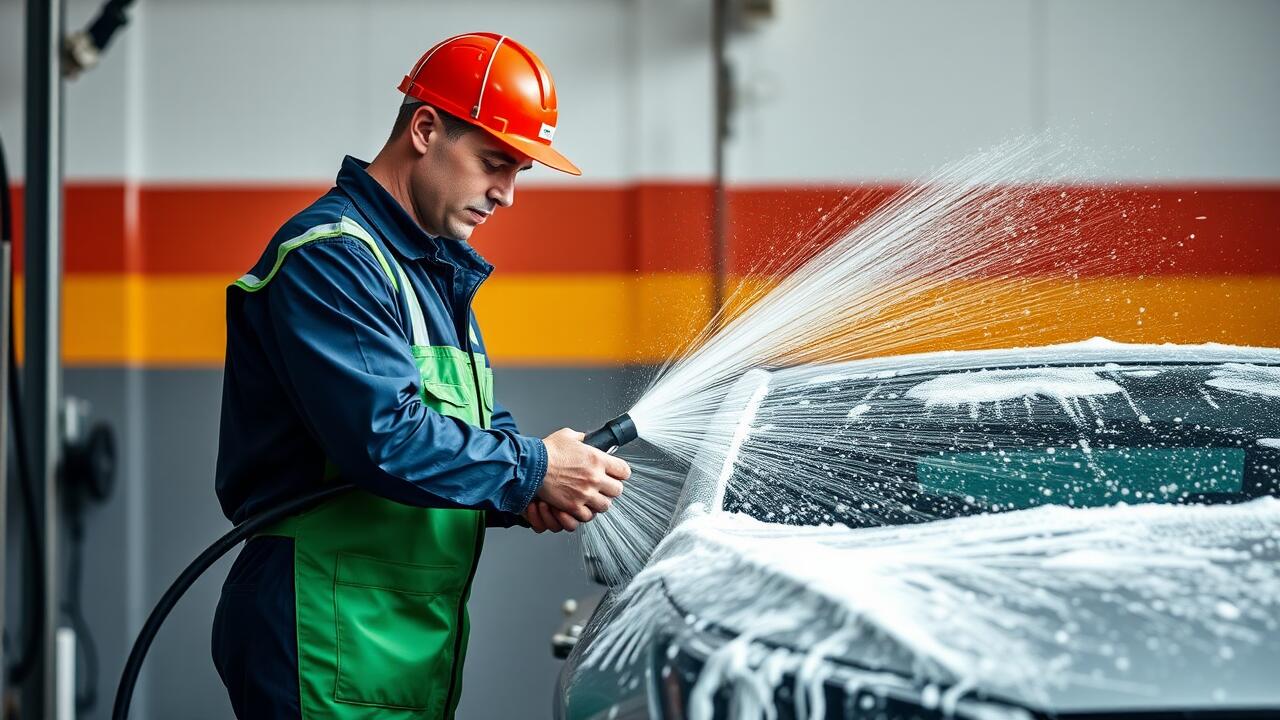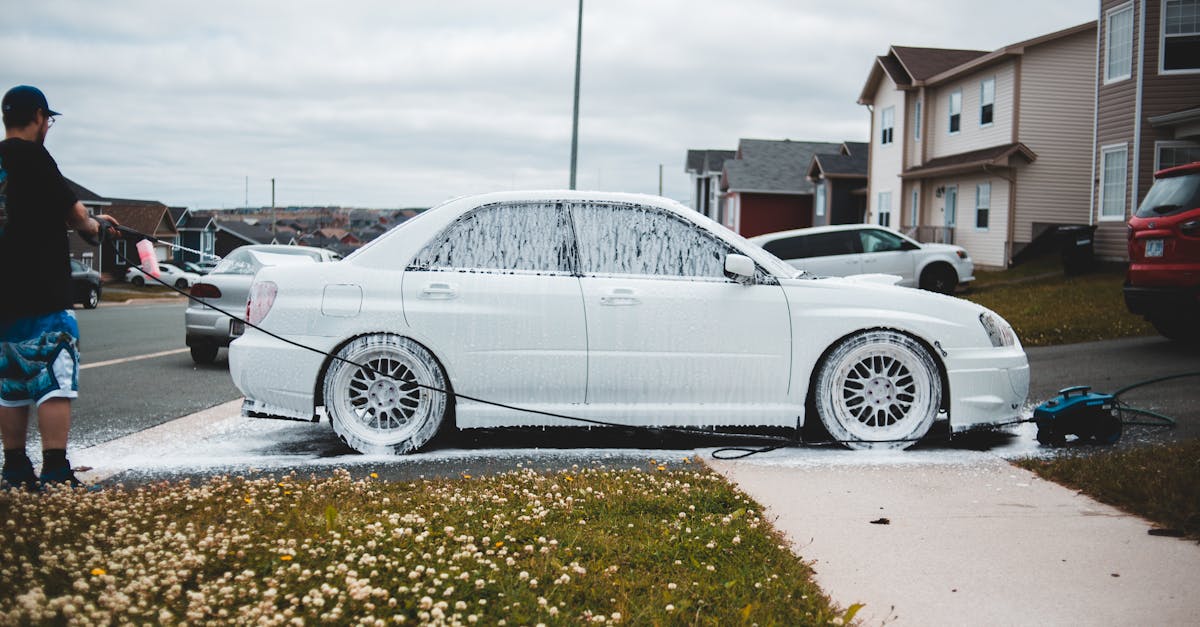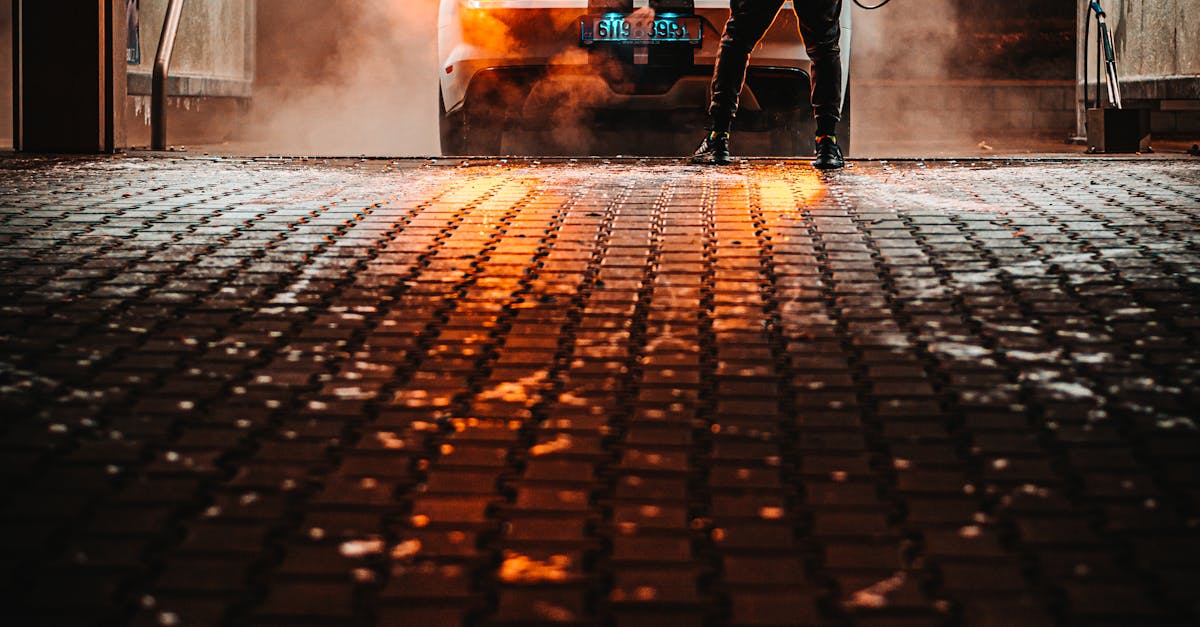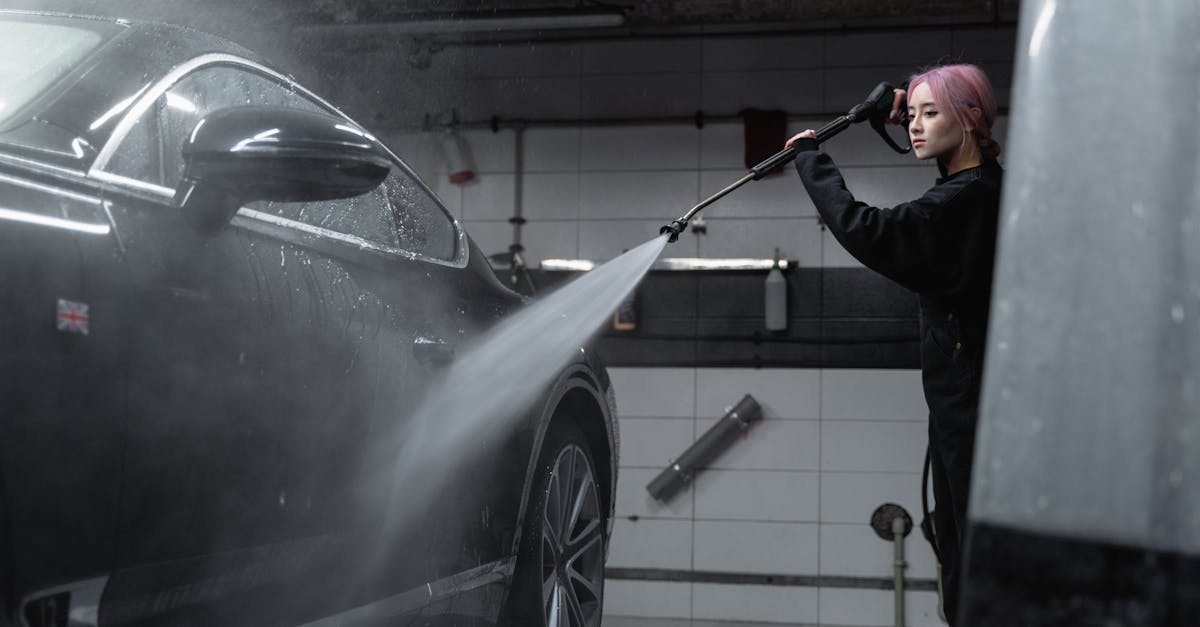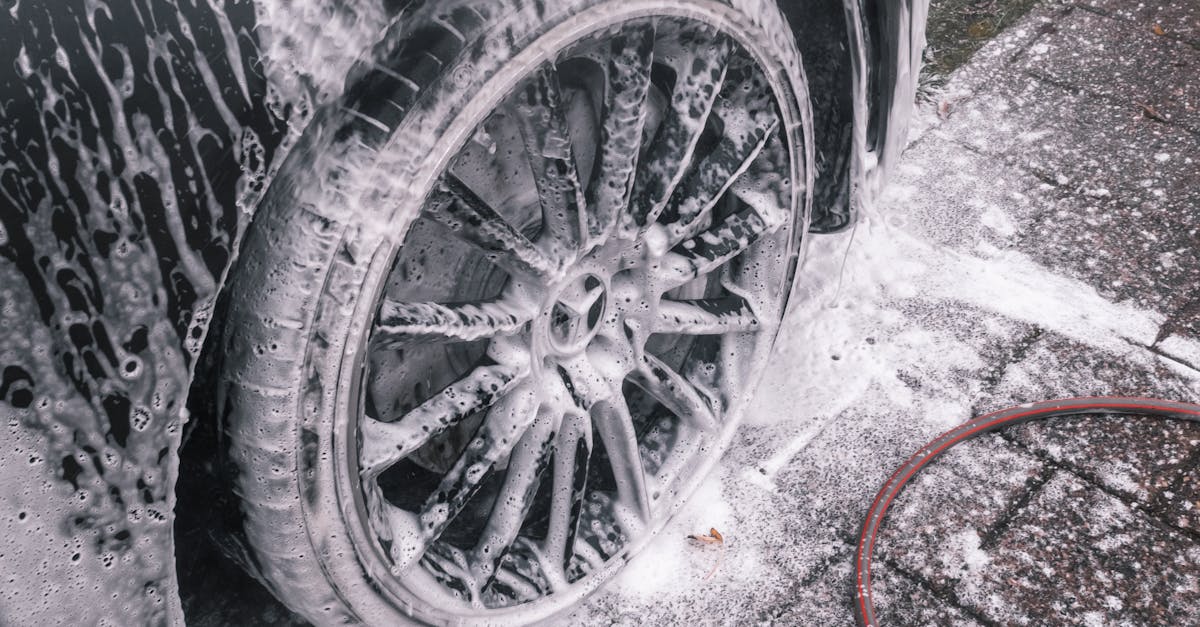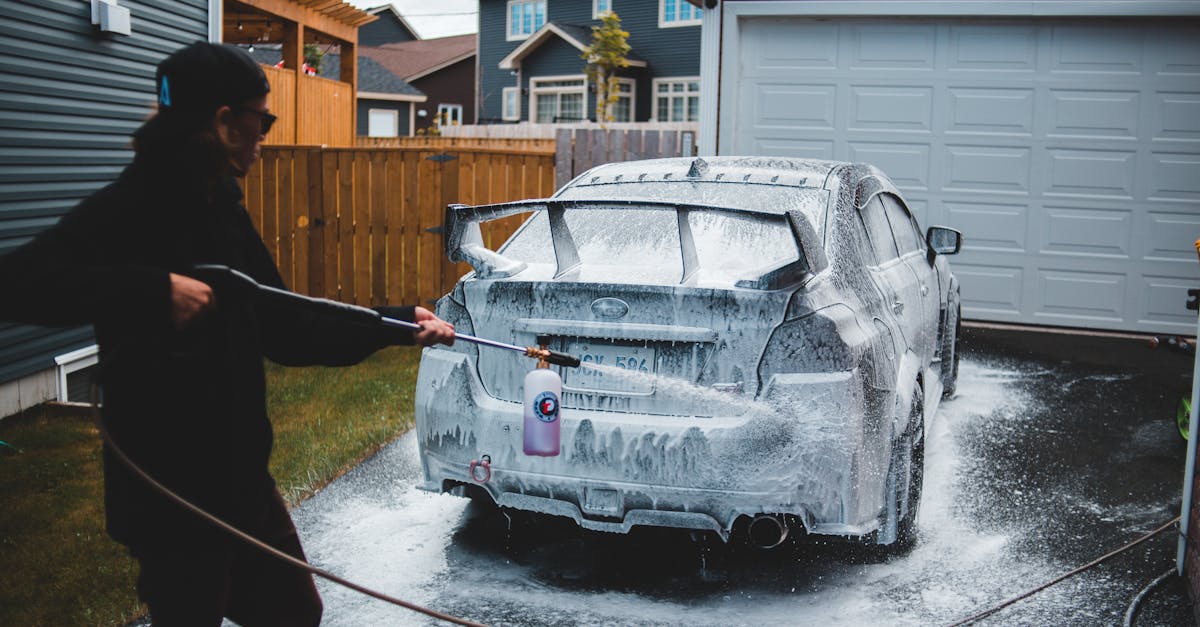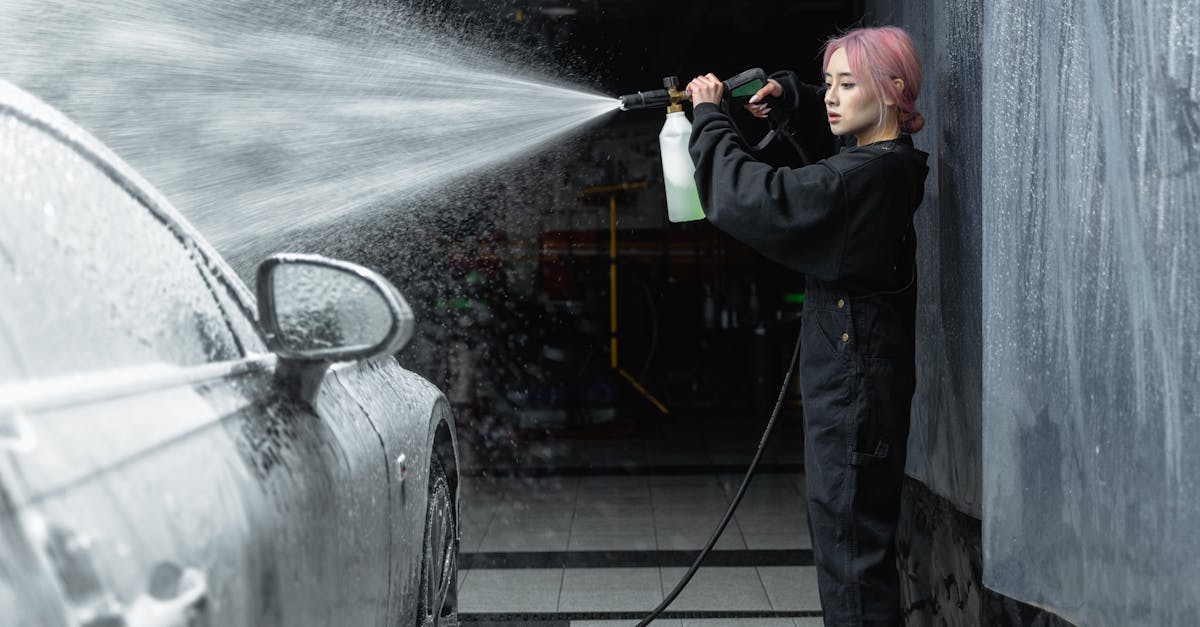
Frequency of High Pressure Washing
The frequency of using a Pressure Car Wash largely depends on several factors, including environmental conditions and individual driving habits. If a vehicle is often exposed to dirt, mud, or road salt, more frequent washes may be necessary. City dwellers, for instance, may find their cars accumulating grime faster than those living in rural areas. Additionally, if the vehicle is frequently parked under trees, sap and bird droppings may also necessitate more regular cleaning.
For those who want their vehicles to maintain a pristine appearance, a Pressure Car Wash can be beneficial. While some might choose to wash their vehicles every week, others might feel a monthly wash suffices. Personal preferences, alongside seasonal changes, will dictate how often one should opt for this cleaning method. Ultimately, staying attentive to a vehicle’s condition will help in determining the ideal washing frequency.
How Often Should You Clean Your Vehicle?
Regular cleaning of your vehicle is essential to maintaining its appearance and protecting its paintwork. Many experts recommend washing your car every two weeks, especially if you frequently drive in urban areas or during adverse weather conditions. Dirt, grime, and road salt can accumulate quickly, leading to potential long-term damage. High pressure car wash services provide an efficient way to tackle accumulated impurities while saving you time and effort.
For those living in more rural settings or using their vehicles infrequently, a monthly wash may be sufficient. However, if your vehicle is exposed to excessive dust, mud, or other environmental factors, increasing the frequency could be beneficial. It’s also wise to consider a high pressure car wash following any long trips. This ensures that any road film or insect residue is dealt with promptly, preserving the vehicle’s aesthetic and structural integrity.
Cost Analysis of High Pressure Car Washes
The cost of using a pressure car wash can vary significantly depending on the location and services offered. Generally, commercial outlets provide various packages, which may include additional features such as waxing or interior cleaning. Prices can range from minimal charges for a basic wash to more substantial fees for comprehensive detailing services. It is advisable to compare options available in your area to assess the best value for your needs.
On the other hand, investing in DIY pressure car wash equipment can prove cost-effective over time. Initial costs might seem high, particularly for quality machines, yet these can pay off with frequent use. Having your own equipment allows for flexibility in scheduling washes and enables you to maintain your vehicle at your convenience. However, potential extra costs such as water and electricity usage should be taken into account when weighing the financial implications.
Comparing DIY and Commercial Options
When considering car washing methods, many people weigh the benefits of DIY versus commercial options. A DIY approach to using a pressure car wash can save money, especially for those who own their own equipment. This option allows for flexibility in scheduling and the comfort of cleaning the vehicle at home. However, using a personal pressure car wash requires some level of skill and knowledge about the right techniques and products to utilise, ensuring that the car’s surface is not damaged in the process.
On the other hand, commercial pressure car wash facilities offer convenience and professional expertise. Staff at these locations are trained to use powerful equipment effectively, often leading to a more thorough clean. Although this option tends to be more costly than DIY, the time saved and assurance of high-quality results can be worth the expense. Choosing between DIY and commercial pressure car wash services ultimately depends on personal preference, budget, and the condition of the vehicle.
Preparations Before a High Pressure Wash
Before heading to a Pressure Car Wash, it is essential to prepare your vehicle properly to ensure an effective clean. Start by removing personal belongings from the interior. Loose items might shift during washing or become damaged by water. Additionally, it is advisable to check for any areas that need special attention, such as excess dirt, bird droppings, or tree sap. Taking the time to identify and address these spots can enhance the overall washing experience.
Another crucial step is to inspect the condition of your vehicle’s paintwork and trim. Look for any scratches, chips, or coatings that may require special treatment. If you are concerned about certain areas, consider applying a protective wax beforehand. Ensuring that your tyres are free from mud and debris can prevent any unwanted grime from being blasted onto the body of the car during the Pressure Car Wash. Preparing your vehicle in these ways can lead to a more satisfactory and thorough cleaning process.
Steps to Take for Optimal Results
Before you begin a pressure car wash, it is essential to prepare your vehicle properly. Start by removing any personal items from the interior and exterior, as this ensures nothing is accidentally damaged during the wash. Take care to rinse off any loose dirt or debris from the surface to prevent scratching the paint during the high-pressure cleaning process. Additionally, pay attention to areas such as wheel arches and undercarriage, as built-up grime often accumulates in these locations.
Once you’ve done the initial rinse, it’s important to choose the right cleaning solution. Opt for a detergent designed specifically for use with pressure car wash equipment, as this will help lift dirt without harming the paintwork. Apply the soap generously, allowing it to dwell for a short period; this will help break down tough stains. Finally, adjust the pressure setting on your machine according to the type of surface you are cleaning. Using a lower pressure for delicate areas, such as around the windows and trims, can prevent damage while still achieving a thorough clean.
FAQS
Is a high pressure car wash safe for all vehicles?
While high pressure car washes are generally safe, they may not be suitable for all types of vehicles, particularly those with delicate paint finishes or certain aftermarket modifications. It’s best to check with your car manufacturer’s guidelines before proceeding.
How often should I get my car high pressure washed?
The frequency of high pressure washing depends on several factors, including your driving habits, weather conditions, and whether you park outdoors. Generally, it’s advisable to wash your vehicle every 2-4 weeks, but more frequent washes may be needed in certain situations.
What are the cost differences between DIY and commercial high pressure washes?
DIY high pressure washing may require an initial investment in equipment and cleaning supplies, but it can be more economical in the long run. Commercial washes tend to charge per wash, which can add up over time, but they often provide convenience and professional results.
Are there any preparations I should make before using a high pressure wash?
Yes, it’s recommended to remove any loose dirt, debris, or personal items from your vehicle. Additionally, ensure that windows are closed and any sensitive areas, like the engine bay, are protected from high-pressure water.
Can high pressure washing damage my car’s paintwork?
If not done correctly, high pressure washing can potentially damage your car’s paintwork, especially if the nozzle is too close to the surface or if inappropriate cleaning products are used. It’s important to maintain a safe distance and use appropriate techniques to avoid any harm.
